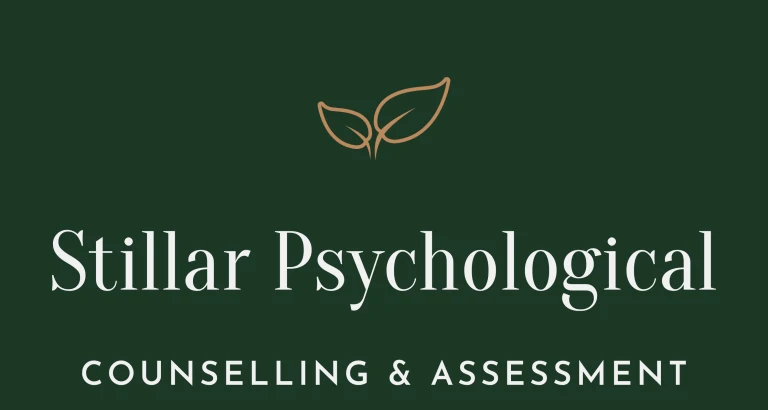Supporting a child struggling with anxiety can be challenging for any parent or caregiver. Knowing how to help a child with anxiety requires a compassionate approach, patience, and a set of effective strategies tailored to their unique needs. By understanding the nature of anxiety, learning how to communicate effectively, and providing coping tools, you can play a crucial role in your child’s journey toward managing their anxiety.
Recognize and Validate Their Feelings
One of the most important steps in helping a child with anxiety is recognizing and validating their feelings. When a child expresses worry or fear, it’s essential to listen attentively and acknowledge their emotions. Dismissing or minimizing their concerns can make them feel unheard or misunderstood, which may exacerbate their anxiety.
Instead, encourage your child to talk about their worries. Create a safe space where they feel comfortable sharing their thoughts without fear of judgment. Acknowledge that their feelings are real and valid, even if the fears seem irrational to you. By doing this, you help your child understand that it’s okay to feel anxious and that their emotions are a natural response to certain situations.
Create an Open Dialogue for Communication
Fostering open communication is vital when dealing with a child’s anxiety. Encourage your child to talk openly about their fears and worries. Make it a habit to have regular conversations where they can freely express how they feel. Consistent practice can help them become more comfortable discussing their anxiety and understanding that they have support.
It’s also important to practice active listening. When your child speaks, give them your full attention, make eye contact, and nod to show you’re engaged. Reflect back on what they say to confirm understanding and bring empathy.
You might say, “It sounds like you’re feeling really worried about going to school tomorrow. That must be tough.” This approach not only validates their experience but also strengthens your connection and trust.
Help Develop Healthy Coping Mechanisms
Teaching your child coping mechanisms is crucial for managing anxiety. Self-soothing techniques, such as deep breathing exercises, can be particularly effective. For instance, guide your child through “belly breathing” exercises where they inhale deeply through their nose, hold their breath for a few seconds, and then exhale slowly through their mouth. Practicing this regularly can help them calm down during moments of heightened anxiety.
Another effective strategy is role-playing. Role-playing anxiety-provoking situations, such as attending a new school or meeting new people, can help your child prepare mentally and emotionally.
Encourage Problem-Solving and Decision-Making Skills
Empowering your child with problem-solving skills can greatly reduce anxiety. When your child voices concerns about specific situations, work together to brainstorm possible solutions. For example, if they’re worried about a social event, discuss ways to make the experience more manageable, such as arriving early to get comfortable or having a plan to leave if it becomes overwhelming.
Involving your child in decision-making processes helps them feel more in control of their environment. It also teaches them that they have the ability to influence outcomes, which can reduce feelings of helplessness and anxiety.
Avoid Enabling Anxious Behavior
While it may be tempting to shield your child from anxiety-inducing situations, the approach can reinforce their fears over time. Instead of avoiding these situations, encourage your child to face them gradually. If your child is afraid of dogs, start by exposing them to pictures of dogs, then videos, and eventually a live, calm dog. This method, known as gradual exposure, helps desensitize them to their fears and builds resilience.
It’s also necessary to avoid giving too much attention to anxious behaviors. If a child receive excessive attention every time they express anxiety, they may learn to use these behaviors as a way to get comfort or avoid certain situations. Offer support, but also encourage independence by reinforcing that they are capable of handling their fears.
Model Healthy Anxiety Management
Children often learn how to respond to anxiety by observing their parents and caregivers. If they see you managing your own anxiety calmly and constructively, they are more likely to adopt similar strategies. For instance, if you’re feeling stressed, verbalize your coping strategy out loud, such as, “I’m feeling a bit anxious right now, so I’m going to take a few deep breaths to calm myself.”
Avoid becoming overprotective or anxious yourself, as children can mirror your reactions. Demonstrate confidence in their ability to cope and handle situations independently. Encouragement and positive reinforcement can go a long way in helping your child feel capable and confident in managing their anxiety.
Create a Structured Routine
Maintaining a consistent routine can give a sense of stability and predictability for children with anxiety. Routines help children feel secure and understand what to expect next, which can significantly reduce anxiety. Ensure their daily schedule includes time for structured activities, free play, regular meal times, and a consistent bedtime routine.
A well-established routine can also include designated times for relaxation and mindfulness practices, helping your child develop a sense of calm and balance throughout the day. Encourage them to participate in these routines actively, which helps reinforce the importance of structure in managing anxiety.
Understand the Nature of Anxiety
Anxiety is a natural emotional response to perceived threats or stressful situations. It can manifest in various forms, including excessive worrying, physical symptoms like headaches or stomachaches, and avoidance behaviors. Understanding anxiety as a part of the human experience can help normalize your child’s feelings and reduce the stigma around it.
It’s also crucial to educate your child about anxiety. Explain to them that everyone feels anxious sometimes, and it’s a common reaction to certain situations. Help them identify their anxiety triggers and understand the difference between a real threat and a perceived danger. This awareness can empower them to manage their emotions more effectively.
Minimize Anticipatory Anxiety
One of the most challenging aspects of managing anxiety is the anticipation that often precedes anxiety-provoking events. To help minimize this anticipatory anxiety, try to keep discussions about upcoming events brief and to the point. Too much focus on the event can lead to rumination and increase anxiety levels.
Encourage your child to focus on the present moment rather than worrying about what might happen in the future. Mindfulness techniques, such as guided imagery or progressive muscle relaxation, can be helpful in keeping them grounded in the here and now.
Seek Professional Help When Needed
While many children can learn to manage their anxiety with support from their parents and caregivers, some may need additional help from a professional. If your child’s anxiety is severe, persistent, or significantly interferes with their daily life, it may be time to seek professional help.
Start by discussing your concerns with your child’s doctor or a school counselor, who can deliver guidance and recommend appropriate resources. Therapy options like cognitive-behavioral therapy (CBT) are particularly effective in treating childhood anxiety disorders.
Our therapists at Stillar Psychological are experienced in providing counseling for children and teens, utilizing evidence-based approaches like CBT, DBT, EFT, and EMDR to support young clients in overcoming anxiety and other related challenges.
Maintain a Positive and Supportive Environment
Creating a supportive home environment can make a significant difference in helping your child manage anxiety. Praise your child’s efforts in facing their fears and acknowledge the progress they make, no matter how small. Positive reinforcement can boost their confidence and encourage them to continue working on their coping strategies.
Encourage a growth mindset by emphasizing that learning to manage anxiety is a journey that requires practice and patience. Celebrate their successes and help them view setbacks as opportunities for learning rather than failures. This mindset fosters resilience and a proactive approach to managing anxiety.
Support Through Parenting Concerns
Parenting a child with anxiety can bring about its own set of challenges and concerns. It’s normal to feel unsure about the best way to support your child. Remember that you don’t have to navigate this journey alone. Reach out to professionals who specialize in child and adolescent mental health for guidance and support.
At Stillar Psychological, we understand the unique needs of children and their families. Our team is here to provide a comprehensive overview of anxiety and offer practical strategies to help your child thrive. We bring mental health services for all ages and across the lifespan, ensuring that every family member receives the care and support they need.
Encourage Social Connections and Activities
Social connections play a crucial role in a child’s development and emotional well-being. Encourage your child to engage in social activities that they enjoy and feel comfortable with. Participation in group activities or team sports can help build social skills, boost confidence, and give a sense of belonging.
However, be mindful of your child’s comfort level and avoid pushing them into situations that may cause excessive stress. Gradually encourage social interaction, starting with smaller, more manageable groups or one-on-one playdates, and gradually work up to larger social settings.
Use Positive Reinforcement and Rewards
Positive reinforcement is a powerful tool for encouraging desirable behaviors in children, including those related to managing anxiety. When your child successfully uses a coping strategy or faces a feared situation, acknowledge their effort and reward them appropriately. Rewards can be simple, like verbal praise, a small treat, or extra playtime.
The goal is to reinforce the behavior you want to see more of, helping your child associate managing their anxiety with positive outcomes. Over time, this approach can help reduce anxiety and promote confidence in their ability to handle challenging situations.
Maintain Open Communication with Educators
Collaborating with your child’s educators is essential, especially if anxiety affects their school performance or social interactions. Keep an open line of communication with teachers, school counselors, and other relevant staff. Share your child’s triggers and coping strategies so that they can provide consistent support in the school environment.
Teachers can also help by creating a supportive classroom atmosphere, providing breaks or accommodations as needed, and helping to facilitate positive peer interactions. Partnership can ensure that your child receives the comprehensive support they need to succeed academically and socially.
Encourage Healthy Lifestyle Habits
Promoting a healthy lifestyle can significantly impact a child’s ability to manage anxiety. Encourage regular physical activity, as exercise has been shown to reduce anxiety by releasing endorphins, which are natural mood lifters. Ensure your child gets enough sleep, as poor sleep can exacerbate anxiety symptoms.
A balanced diet that includes a variety of nutrients can also help stabilize mood and energy levels. Incorporating relaxation techniques such as yoga or mindfulness meditation into your child’s routine can deliver additional tools for managing stress.
We recognize the importance of a holistic approach to mental health and can guide you in integrating these healthy habits into your child’s daily life.
Stillar Psychological is committed to giving comprehensive mental health services to children, teens, and their families. Our experienced therapists are trained in various therapeutic approaches to support a wide range of issues, including anxiety, depression, OCD, trauma, and more. We offer a compassionate and individualized approach to help your child develop the skills and confidence needed to manage their anxiety effectively.
We invite you to explore our services and consider scheduling a consultation with one of our skilled professionals. Our team is here to provide guidance, support, and evidence-based treatment to help your child overcome anxiety and achieve a sense of well-being. Contact our team for professional help today.


















